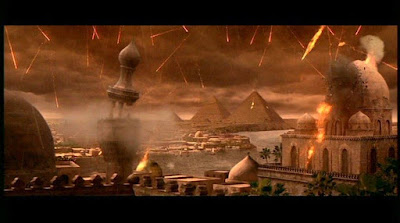by Rav Avraham Shapira zt"l, yeshiva.org.il, translated by Hillel Fendel
We read in this week's Torah portion of Bo that G-d gave Moshe and Aharon the following commandment: "This month [Nissan] shall be the first of the months of the year for you" (Sh'mot 12,1). It is from here we learn the laws of how the rabbinical court sanctifies the new months and determines the holidays accordingly. One of these laws, as taught in Tractate Sanhedrin, is that this mitzvah may be performed only in Eretz Yisrael.
The Sages explained the difference between how the Festivals are scheduled and sanctified and how the Sabbath is sanctified: "Israel sanctifies the times" via its courts and Sages, "while the sanctity of the Sabbath has already been determined by G-d forever," in that it falls every seventh day ever since Creation, with no exceptions.
We know the famous words of Rashi on the first verse of the Torah. He asks there why the Torah did not begin with the first commandment given to Israel, namely, that of Sanctifying the New Month, but rather with the story of Creation? His answer is that the Torah wished to thus emphasize the value of Eretz Yisrael, in that it was assigned to us by the very Creator of the world. The depth of this idea is that there is no change in order here; rather, the importance of Eretz Yisrael as shown in the first mitzvah is emphasized as well in the first verse of the Torah! The emphasis on the value of the Land is the very groundwork for the first mitzvah given to Israel.
The Talmud teaches: "One must go to greet his Rabbi on the Festivals" (Rosh HaShanah page 16). Why specifically on the holidays must this be done? The Rama of Pano explained beautifully: "Given that the Sages and the Sanhedrin are those who sanctify the months, and the determination of the Festivals is dependent on their decisions, the Festivals are the best and most appropriate time for us to connect again with our rabbis – on these very times that are determined by them." Add to this that which the Noda B'Yehuda wrote, that the rabbi has an abundance of holiness [at these times] that can spill over to his students.
The Rambam ruled that we determine the months only in the Land of Israel, as is written, "For from Zion will come forth Torah, and the word of G-d from Israel." The Talmud tells us that Rabbe Akiva actually headed a court that set the months while he was outside the Land - because there was no one greater than him in Eretz Yisrael at the time. But the Rambam makes sure to note that such a thing can only be allowed if the rabbi was at least ordained in the Land.
That is, one who was ordained in Eretz Yisrael, all his Torah is based in the Land – such that even if he leaves the Land, the verse "For from Zion shall come forth Torah," referring to the mitzvah of calculating the months and determining leap years, is still being fulfilled.
This is why we say, in the monthly prayer on the Sabbath before the New Moon, "May He redeem us soon and ingather our exiles from the four corners of the earth" – because the natural place for the sanctification of the month is specifically in Eretz Yisrael.
May we be privileged to cling to the Torah and its Sages, and to absorb from the light of the Land of Israel!






